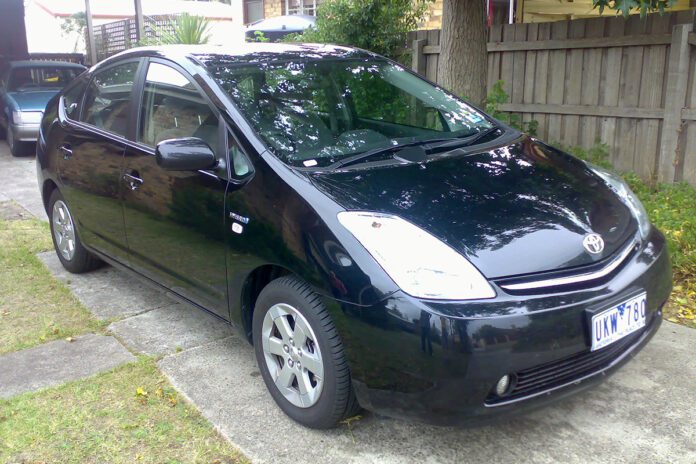
Dear EarthTalk: How did Toyota go from being the leader in mass-produced greener cars to being a laggard in the sector?
— P. Brooks, Demarest, NJ
It’s hard to believe that Toyota, the automaker behind the hugely successful hybrid-electric Prius, is no longer viewed as a leader in greener cars. According to Danny Magill, an analyst at the London-based think tank InfluenceMap, Toyota has gone from a leading position to an “industry laggard” in clean-car policy as other automakers push ahead with ambitious electric vehicle (EV) plans.
InfluenceMap gives Toyota a “D-” grade—the worst among automakers—saying it exerts policy influence to undermine public climate goals. While companies like Tesla have produced fully electric cars that are all the rage now on the American road, Toyota, focusing on gas-electric hybrids and futuristic fuel cell vehicles, has started to lose market share. Records show that the Prius hybrid reached its peak in 2012 as the world’s third best-selling car line with 247,230 sales; sales declined to 69,718 in 2019, and 2020 was certainly much worse (given the pandemic’s pull on the economy at large).
Toyota officials have publicly argued that too aggressive a transition to fully electric vehicles could have negative setbacks. Instead, Toyota believes that hybrid and plug-in hybrid vehicles are more realistic in our transition away from gasoline-powered cars to reduce emissions. “Too little attention is being paid to what happens between today, when 98 percent of the cars and trucks sold are powered at least in part by gasoline, and that fully electrified future,” says Toyota spokesperson Eric Booth.
Toyota’s renewed focus on hybrid-electric vehicles may be attributable their forward-looking hydrogen-fueled automobiles having been a bust as to marketplace success. These zero-emission cars contain hydrogen tanks and fuel cells that can convert hydrogen into electricity, unlike other electric vehicles that are battery-powered. Toyota’s hydrogen models can travel hundreds of miles on a tank, and emit only water vapor. But the expense of hydrogen fuel and the lack of refueling infrastructure has kept the technology from going mainstream. Given these setbacks, Toyota has advocated for their hybrid technology as a logical transition to greener transportation when hydrogen becomes more accessible.
Over the past few years, the company has also sued the Mexican government in an attempt to block fuel efficiency standards there. Toyota has also supported the former Trump administration’s court battle with California over revamping Clean Air Act emissions standards. Also, Toyota is rumored to be part of a collaborative lobbying effort with the Washington, D.C.-based Alliance for Automobile Innovation to fight new regulations calling for zero-emissions vehicles. Moreover, Toyota’s Political Action Committee was the top donor to Republicans in Congress who opposed the results of the 2020 presidential election.
While Toyota continues its opposition to true EVs, major markets like China have begun an aggressive shift towards EV production and can ultimately force the company’s hand. Environmentalists and economists agree that in order for Toyota to increase its profit margins and remain viable into the future, it needs to rethink its vision—and prepare for a battery-electric future.
EarthTalk® is produced by Roddy Scheer & Doug Moss for the 501(c)3 nonprofit EarthTalk. See more at https://emagazine.com. To donate, visit https//earthtalk.org. Send questions to: [email protected].

















